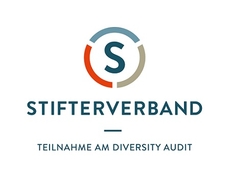Events transregional
To Be Honest Conference for Researchers 2025
Being a researcher has never felt more uncertain: short-term contracts, constant transitions, global instability, and the challenge of planning a life and career around the unknown. At the To Be Honest Conference 2025, we’ll talk honestly about what it means to build a career and do research in a rapidly changing world.
Come for the advice, stay for the honesty. Two days of real talk about careers in research and beyond.
Date: December 4.-5., 2025 ONLINE
New Specialized Language Course for International Researchers – Register Now!
The International DAAD Academy (iDA) is expanding its professional development portfolio: Starting in autumn 2025, we will offer a new specialized German language course designed specifically for international (early career) researchers at German universities. The course is titled:
"German for International (Early Career) Researchers – Integration into the University Environment and Preparation for the German Job Market"
This new course format is aimed at researchers who wish to strengthen their linguistic and intercultural competencies in an academic context — with the goal of navigating daily life at German universities more confidently and preparing for a professional career in Germany.
Course at a glance:
- Duration: September 9 – November 11, 2025
- Weekly sessions: Tuesdays, 8:00 – 9:30 a.m. (10 sessions)
- Format: Online via Big Blue Button
- Group size: Maximum 14 participants
- Course language: German (B1/B2 level required)
- Course fee: 500 EUR
What participants can expect:
The course focuses on academic German, intercultural communication, and practical orientation within the German higher education system. Participants will learn how to integrate into university structures, confidently take part in meetings, give presentations, and navigate the German job market — including the application process — more effectively.
Learn more and register
Full details, the course program, and the registration link are available on our website:
👉 Language Course: German for International Researchers – DAAD Academy
We appreciate your support
Do you know international researchers at your university who might be interested in this course? We would be grateful if you could share this information — also with other departments or colleagues working with this target group.
Thank you very much for your support!
Your International DAAD Academy (iDA)
– Professional development for the international higher education community –
Social Security Made Simple – English Info Sessions
Also in winter, we continue our popular English-language social security info sessions designed specifically for new international employees. These free sessions provide valuable insights into the German social security system and help make the first steps in Germany a little easier.
📅 Upcoming Dates:
- Tuesday, December 2, 2025
🕑 Each session runs from 2:00 PM to 3:00 PM (CET)
In these free live online sessions, participants will receive clear, accessible information about:
-
Health, pension, unemployment, and long-term care insurance in Germany
-
First official steps after starting a job
-
Practical guidance and important contacts
TK-StudyGuide – The Exciting Student Journey Continues!
Invitation to the TK-StudyGuide 2025
Student life comes with plenty of challenges: stressful exams, countless assignments, and the constant balancing act between studies and personal life. The TK-StudyGuide is the perfect companion to help you stay healthy, organized, and successful throughout your studies.
What’s new in the TK-StudyGuide 2025?
We’re starting the new semester with freshly updated content, shaped by the feedback and wishes of last semester’s participants.
For the winter term 2025/26, students can choose from 38 inspiring webinars covering topics such as:
-
Arriving in Germany – orientation and support for international students
-
Mental health in student life – strategies for stress, pressure, and overwhelm
-
Self-marketing in job applications – practical tips for your career start
-
Nutrition and social media – trends, tips, and evidence-based insights
All webinars are available in both German and English.
Easy, digital, and free
The TK-StudyGuide is a free digital offer that universities can easily integrate into their own programs – with no additional organizational effort and without tying up extra staff resources. Individual webinars can also be shared separately.
All details and direct links to the sessions can be found in the TK Webinar Overview WiSe 25/26, including a section with additional Info Sessions.
Why the TK-StudyGuide is worth it
The TK-StudyGuide directly addresses the findings of the 2023 Health Report (“How are Germany’s students doing?”). Its goal is to inform and raise awareness among students at an early stage in a practical way. This not only benefits students themselves but can also help reduce the overall demand for counseling at universities.
TK on UniNow – Always one step ahead
With TK, students are well taken care of – comprehensive, digital, and often less expensive than many other health insurance providers. Whether you’re starting your career, balancing family life, or studying full-time, TK offers tailored benefits for every stage of life.
🎓 Study smart – succeed and stay healthy:
The TK-StudyGuide is your key to a balanced student life and a successful start to your career!

